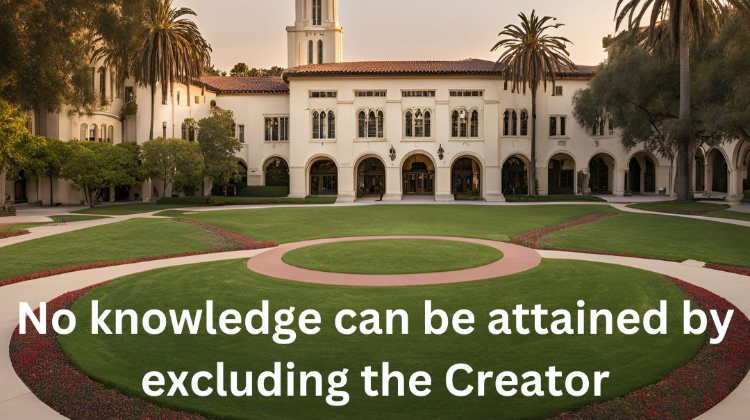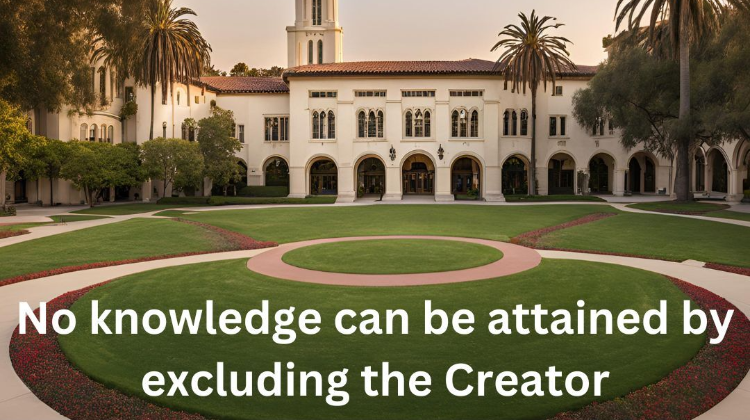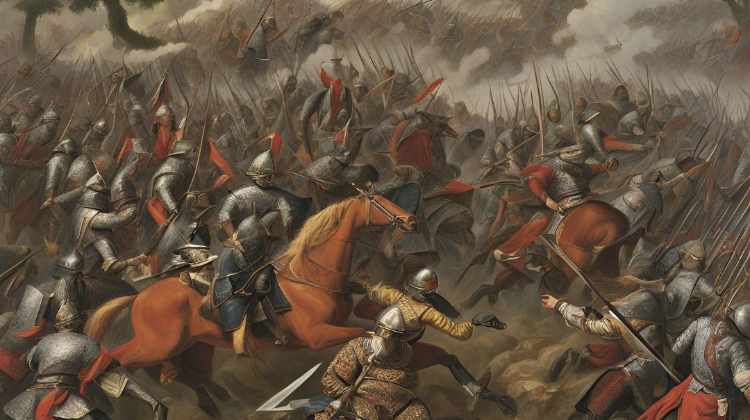Unemployment: The Outcome of the Education System
Unemployment: The Outcome of the Education System
The purpose of English education was to create clerks necessary for running the colonial administration. It is unnecessary to explain how foolish it is to make everyone in a country a clerk. Even after the British left, we continue to apply that same education system, producing an excessive number of clerks, which has created a significant unemployment problem in our country (and similar countries). We are struggling in this sea of problems. Even as new job opportunities are created, hundreds of thousands more clerks graduate. The nation is struggling to cope with the pressure of these educated unemployed, as uneducated people rarely remain unemployed. They do not hesitate to engage in any physical labor. But once someone has a certificate or two in their portfolio, they can no longer be involved in manual labor. Their environment and mentality become barriers as high as the Himalayas before them.
One of the primary purposes of education is the development and growth of human resources. However, the education system in our country cannot meet the demands of the time, let alone the intellect. The existing education system has become a burden for society rather than a driver of progress. No matter how much we boast about education, we haven't advanced much. The British-era education system was at least useful for producing clerks; in independent Bangladesh, we lack even that utility, which is not just unfortunate but also shameful. According to the Bangladesh Bureau of Statistics' Quarterly Labour Force Survey 2023, the total labor force in the first quarter of 2024 was 73.7 million. By the end of the first quarter of 2024, the number of unemployed had risen to 2.59 million, up from 2.35 million in the last quarter of 2023 (October-December), an increase of 240,000 in three months (Bangla Tribune, 6 May 2024).
Thus, the number of unemployed in Bangladesh is increasing, with the most alarming picture among the highly educated. The Bangladesh Bureau of Statistics' full report on the 2022 Labor Force Survey states that the unemployment rate among graduates of universities and equivalent institutions has now reached 12%. According to the 2023 figures, the number of unemployed graduates has doubled in the previous five years, reaching 800,000. Before the Covid-19 pandemic, a report by the International Labour Organization (ILO) showed that among 28 countries in the Asia-Pacific region, Bangladesh ranked second in terms of unemployment among the highly educated, with Pakistan in the first place.
The Bangladesh Institute of Development Studies (BIDS) reports that the unemployment rate in the country is 3.6%, with youth unemployment accounting for almost 80%. Therefore, it is now seen that applicants with higher educational qualifications apply for any job, regardless of the required qualifications. For example, from December to March (2024), Bangladesh Railway hired 2,172 waymen in two phases. The main job of a fourth-class wayman is to keep the railway tracks clean and tidy, tighten nuts and bolts on the tracks, and carry out minor maintenance work. Bangladesh Railway set the educational qualification for the post of wayman as SSC or equivalent. However, in the latest recruitment process, all those who got jobs as waymen, after passing the written and oral exams, had educational qualifications of graduate or master's level.
Moreover, due to the lack of moral education, Bangladeshis have lost or are losing opportunities to work in Middle Eastern countries (Bangladesh Economic Association). According to a report by the London-based Economist Intelligence Unit, Bangladesh has the highest rate of unemployment among graduates in South Asia, at 47%. This means that out of every 100 graduates, 47 are unemployed. Everyone will agree that an uneducated person being unemployed cannot be compared to an educated person being unemployed. In this case, if the investment made by the state, family, and society yields nothing, it will be a huge waste.
According to newspaper reports, 2.2 million people enter the labor market every year, but only 700,000 get jobs. The remaining 1.5 million become a burden on the nation. It is essential that every citizen is educated, but even more important is to utilize that educated workforce appropriately. If we cannot provide employment for the hundreds of thousands of people entering the workforce every year, not only will social instability increase, but crime rates will also take a terrifying shape.
According to a report published in the newspaper Amar Desh (1 July 2012), researcher Mohammad Ibrahim of the Bangladesh Economic Association said that the number of educated unemployed is increasing day by day due to the flawed education system in Bangladesh. The outdated education system is producing clerks, not skilled manpower. Another researcher of the Bangladesh Economic Association, Mohammad Abdullahil Baki Billah, said that as the rate of education increases, so does the rate of unemployment. The increasing pass rate means an increasing unemployment rate. The existing education system is identified as one of the main causes of the creation of educated unemployed in research. This research also shows that 400,000 students pass their postgraduate exams in general education every year, most of whom are looking for jobs and remain unemployed for 6-7 years. They cannot acquire any special skills. Often, it is seen that people with the highest degrees from this country work abroad under secondary pass holders from other countries. After completing their education in the general education system, there is no guidance on what kind of work or job they should do. Due to the lack of job counseling in institutions, students do not understand what kind of work they are qualified for.
This educated middle class became a headache for the nation during the British rule. After the introduction of English education in the 19th century, this 'educated' middle class developed in our society. Explaining the mental nature of this society, Promothanath Bishsi wrote in 1948, "During this time, a middle class rapidly emerged in Bengal. It was both a glory and a disgrace of British rule, both a reason for its establishment and its downfall. The British ruled this country with the help of this middle-class office-going class—eventually, this middle class became disenchanted with British rule and pulled the first brick from its foundation, weakening the pedestal of foreign rule. All the Bengali terrorists were from the middle class.
The situation has changed now. The status and establishment of the middle class are no longer the same as before; their influence is decreasing daily due to the expansion of large-scale machinery. The middle class is a special problem for Bengal. The significant problem of Bengal is the millions of educated, skilled in various ways, helpless and dissatisfied middle class. They once helped establish British rule in India, brightened Bengali culture, and rebelled against British rule! Now they are exhausted and almost incapable of earning a living. Now they are wandering helplessly like 'De-mobilized' soldiers. The authorities consider them unwanted, the general public thinks them excessive, and they consider themselves cursed. If the proper solution for the middle class is not achieved, they will not let peace be established in society; maybe, due to that unrest, the bricks of the ruling pedestal will start falling again. Each of them has a potential red flag secretly present in their bag.
Today, the state we have reached has its roots in the school of Harrow and the classroom of Hindu College. In those days, knowing English guaranteed a job, and the lord used to express eagerness; some would say they would ask their mother, some would say they would inform their father, and if requested, someone would say, 'Mother is not willing to let me go to the land beyond the Ganges.' In those days, the employer was the candidate. Nowadays, knowing English is not enough; even if you devour the English Channel, not even the watchman will look back. The solution of the past has turned into the problem of the present. The sharp sword of the absolute knowledge of the past, in the hands of today's unemployed Bengali, only tries to split hairs, creating countless 'Amit Rays'. (Chitra-Charitra- Promothanash Bishi). Rabindranath Tagore's literature readers are surely aware of the 'dashing smart' demeanor of the verbose Amit Ray.
Clerical work is monotonous, without any creativity. In the British era, when there were no photocopy machines, clerks would make exact copies of documents, which is why the term 'writer' got into the English equivalent. The secretariat of Kolkata is called the Writers' Building. Once, a clerk faced trouble while making an exact copy as a fly had died and stuck to a word. He couldn't understand the word. Eventually, he came up with the idea of killing a fly and sticking it to the copy in the same place. He worked tirelessly for three days to kill a fly and stick it in the right place. It was an exact copy! It is said that the Bengali proverb 'fly-killing clerk' originated from this. This information is from an article by Krishanu Bhattacharya. Surveys were also conducted on clerks during the British era! Famous civilian, journalist, powerful writer, member of the Viceroy's Council, and adviser to the British government, and above all, Director General of Statistics, Hunter Sahib, conducted this survey. In 1870, the number of clerks in West Bengal was 10,247. By 1881, it had reached 16,315. Ten years later, it reached 18,950. Thus, the increasing number of clerks perhaps created the Bengali's reputation for a clerk mentality. In 1886, William Hunter was made Vice Chancellor of Calcutta University, and he also received the position of President of the Education Commission. His most famous book, The Indian Musalmans, which he dedicated to his close friend Mr. Hudson, the same Hudson who killed 29 children of the second Bahadur Shah's royal family and presented their severed heads in a basket to the elderly emperor.
Let’s Return to the Main Topic- The word "clerk" is a symbol of insignificance to us. A clerk means a subordinate, dependent, thoughtless person. He will not have the right to give opinions. He will have no consciousness. He is merely obedient to others. Maulana Abdul Hamid Khan Bhashani used to refer to the American ambassador as America's clerk. He would say, what is there to discuss with a clerk! He was once called for a discussion but refused to attend. He was skeptical about what opinion America's clerk could have on our domestic matters. He expressed astonishment at the idea of seeking a clerk's opinion on matters of an independent state. This was a bold declaration of a freedom-loving patriot. But currently, our national leaders have become so spineless that they continuously flatter British and American ambassadors. The heads of political parties present their plans to these foreign ambassadors before presenting them to the public (news - Manabzamin, 13/08/13), because they believe that European-American diplomats are their destiny makers.
Images Related to this Post












Leave a Comment